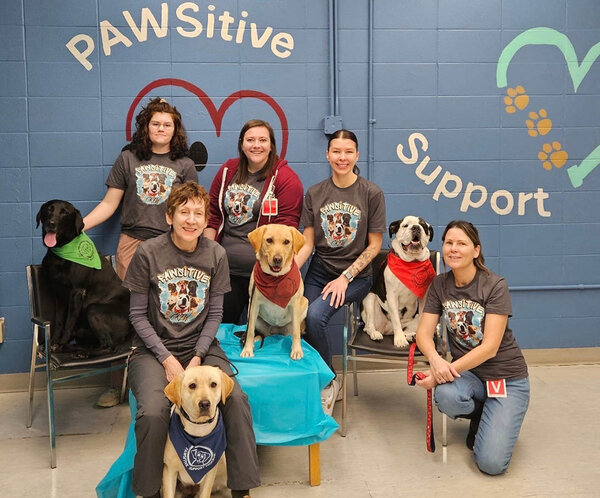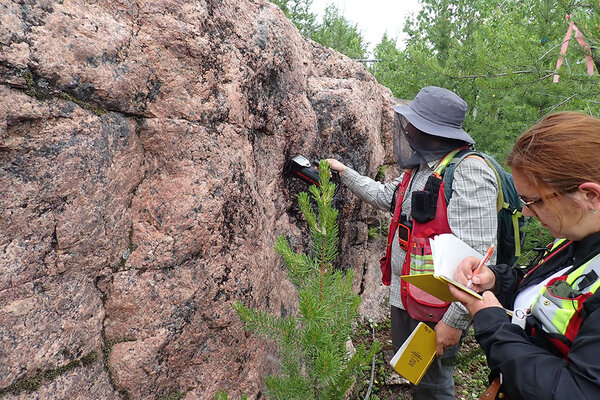
Indigenous parents fear bias, unfair treatment in K-12 school system, new study shows
Participants expressed concerns about the potential for overreporting of Indigenous families to Child Family Services by teachers
By Shannon Boklaschuk
The legacy of settler-colonialism and residential schools in Canada continues to fuel distrust of the education system by some Indigenous parents and hinders the goal of reconciliation in this country, new research from MacEwan University and the University of Saskatchewan (USask) shows.
In a just-published study in the Canadian Review of Sociology, participants expressed concerns about the potential for overreporting of Indigenous families to Child Family Services (CFS) by teachers.
Several interviewees, for example, feared that a perceived disconnection between what some teachers view as “good” parenting practices and Indigenous ways of doing things—including children participating in traditional pipe ceremonies or young children and babies participating in sweat ceremonies—increased risks of child apprehension. Others indicated they didn’t feel comfortable identifying their children on school registration forms as Indigenous, due to worries that their ability to be a “good parent” may be called into question.
“What we found was that Indigenous families fear for their children at school,” said Dr. Emily Milne (PhD), an assistant professor of sociology at MacEwan University, who co-authored the study with Dr. Terry Wotherspoon (PhD), a sociology professor in USask’s College of Arts and Science.
Wotherspoon noted that child welfare continues to stand out as a field in which Indigenous families experience disproportionate chances of losing children through state intervention. Statistics from 2018 show that Indigenous children comprise seven per cent of all children in Canada, yet make up 52 per cent of the children in foster care—and proportions are even higher in the Prairie provinces.
“Senator Murray Sinclair, chair of the Truth and Reconciliation Commission of Canada, has described the child-welfare system as ‘the monster that was created in residential schools’ which has ‘moved into a new house,’ ” said Wotherspoon.
“Overrepresentation in the child-welfare system is particularly acute in the Prairie region. In Alberta, where we conducted our study, one in 10 children has Indigenous ancestry yet Indigenous children account for 73 per cent of the children in care.”
Milne and Wotherspoon’s new study draws on 61 interviews, conducted between October 2017 and January 2019, with parents and teachers connected to a large urban public school board in central Alberta. The participants included six Indigenous teachers, eight Indigenous parents, 10 Indigenous parents who were also teachers and spoke from both perspectives, and 37 non-Indigenous teachers in schools with a large, or an exclusively, Indigenous population.
The school board was also invited to participate in the study, and the researchers—who are both non-Indigenous—consulted with the school board’s Indigenous education office and research office staff throughout the study to ensure the research was conducted in a way that was respectful to all relevant processes and protocols.
The selection as Alberta for the study location was significant, as one in six Indigenous peoples in Canada resides in Alberta and Alberta had more residential schools than any other province or territory. Additionally, Indigenous children continue to be highly overrepresented in Alberta’s child welfare system.
This overrepresentation contributed to some study participants’ belief that schools are dangerous places for Indigenous children and youth.
According to several interviewees, “families know” that CFS cases are initiated at schools, CFS investigations take place at schools, children are apprehended at schools and taken into custody of the child-welfare system and, therefore, “they feel the school is a threat.” One participant observed that “when you rip the parents and the children apart it’s the same as residential school. … Now, the kid believes that the social worker and the school are working together to put him in a foster home.”
The study also touches on the proactive measures that some Indigenous family members have taken to challenge and counter individual actions or institutional practices they consider to be ill-informed or inappropriate.
“Sensitized by prior encounters with racism and exclusion, many Indigenous parents have the social and cultural resources to recognize and counteract situations that could otherwise be harmful,” the authors state in the research paper. “More generally, while it is important to gain further understanding of barriers that impede respectful interactions by educators and social workers with Indigenous parents and families, attention must also be paid to promising practices associated with meaningful institutional transformation.”
While the study explored the participants’ perceptions of, and fears about, the school system, the researchers did not investigate particular child apprehension cases. Social workers and other professionals employed by CFS were not interviewed.
The research article is based on a wider project on which Milne and Wotherspoon are collaborating that focuses on reconciliation in K-12 school systems. The project is funded by several sources, including a Social Sciences and Humanities Research Council (SSHRC) Insight Development Grant, a SSHRC Explore Grant and institutional funds from MacEwan University.
In the discussion portion of their paper, the authors recommend that provincial and territorial education ministries, working with Indigenous agencies and community members, develop clear statements and training for both current and preservice teachers regarding what duty to report means, recommended consultation processes and channels of communication when teachers suspect child mistreatment, and what the possible implications of reporting to CFS may be for children and family members.
“Fostering a dialogue between the school system and Indigenous organizations and community members is key to developing trust and ensuring schools are perceived as a safe space for all students in the future,” said Wotherspoon.
“The release of the Truth and Reconciliation Commission of Canada’s final report was accompanied by Calls to Action that outline a vision for moving forward and for meaningful reconciliation between Indigenous and non-Indigenous Canadians. Our study indicates that relationships in schools continue to produce anxiety among some Indigenous children and parents in ways not experienced by non-Indigenous families. It is important that social workers, teachers and others working in the education and child-welfare systems are educated about the history and long-lasting impacts of residential schools as our country works toward the goal of reconciliation.”


